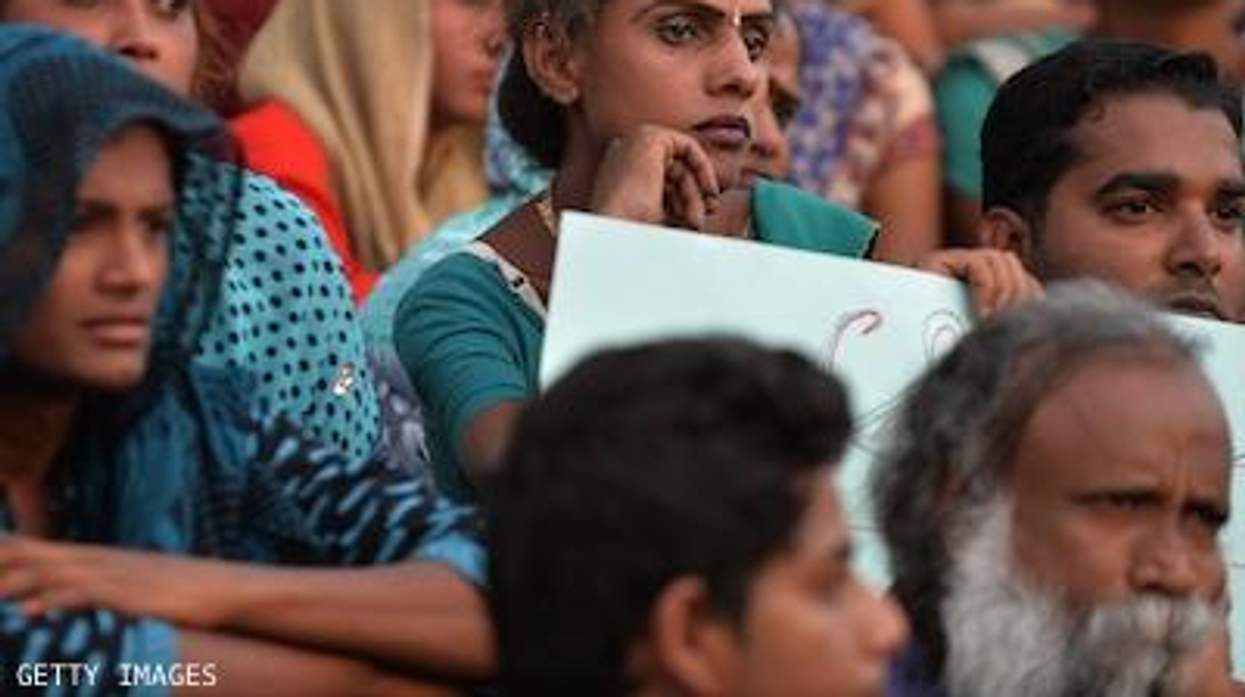Indian police began a "crackdown" on public begging that resulted in 167 hijras -- transgender women -- being detained Monday in a Hoysalas beggars colony on the outskirts of Bangalore, reports LGBT Indian news source Orinam.
While the anti-begging law, established in 1975 under the Karnataka Prohibition of Beggary Act, mandates that beggars be sent to a "relief center" for "rehabilitation" for up to three years, the hijras were released after giving written guarantees that they will no longer ask strangers for food or money.
India's LGBT community, however, remains incensed by the seemingly targeted nature of the sweep, and nearly 2,000 hijras and supporters marched on Wednesday to let Bangalore officials know, reports the Bangalore Mirror. They protested outside of city's town hall with signs, some of which read "My Identity, My Right, My Profession, My Right," "Respect My Identity," and "Arrest Me, Because I Am Begging Now."
The arrests follow on the heels of a November 23 demonstration, staged at Bangalore's pride parade, that protested India's recriminalization of homosexuality in December 2013, notes Gay Star News. Many protestors also lamented that the June 2014 Supreme Court ruling which recognized hijras as an official "third gender" did not come with the benefits afforded citizens of other genders, such as freedom from gender-related police harassment.
In response to Monday's arrests, Orinam called for an inquiry into the "entirely arbitrary" detention of hijras for begging, pointing out that many were not engaged in the act when they were arrested, but rather were going about daily chores. The arrests, they contend, are a concentrated "purge" of a specific group of people conducted in an unconstitutional manner.
"The police even walked into the homes of the hijras and dragged them out," reads Orinam's statement. "It is to be noted that even those hijras who went to the police station because they were called by other arrested hijras were also arrested. Clearly the objective of the police was not merely to lock up those who were begging, but in effect all persons who answered to the description of being hijras."
Further, according to sex-rights blog Paper Bird, India's anti-begging laws are dangerously vague. "The law defines a beggar as anyone 'having no visible means of subsistence' who is caught 'in any public place.' That makes looking poor a criminal act."
After the 167 hijras were released from detention, many advocates pointed out how unjust and ineffective jailing hijras for begging is, as the profession is partly a result of a systemic social reality: Hijras are often considered "untouchables," and therefore do not have access to many other forms of employment. Advocates also expressed concern that the release of those arrested does not preclude many more women from being arrested during the "crackdown" in the coming weeks.




































































Charlie Kirk DID say stoning gay people was the 'perfect law' — and these other heinous quotes